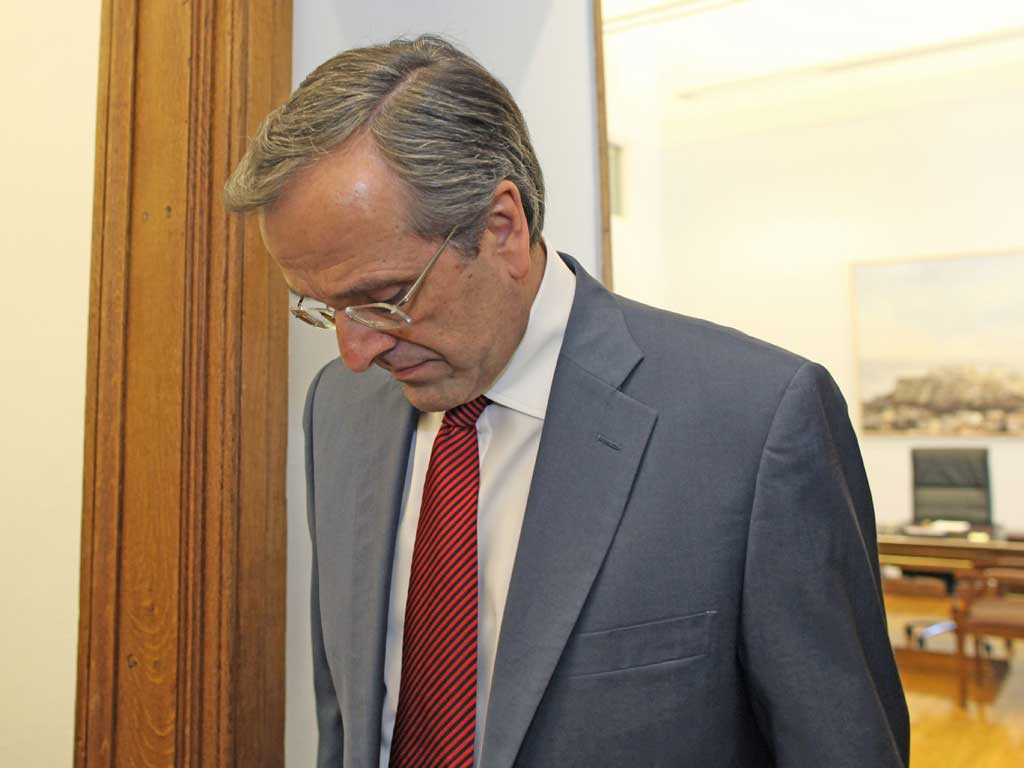Greek PM Antonis Samaras joins his finance minister Vassilios Rapanos in hospital

Greece is heading into the most important European summit of recent times without its new prime minister, who will remain in Athens to recover from eye surgery. The sense of a leadership vacuum has been compounded by the collapse of the new finance minister who was taken to hospital before he could be sworn into office.
Antonis Samaras underwent a four-hour procedure on a detached retina on Saturday and has been advised not to fly. The 61-year-old premier took office at the head of a weak coalition last week after two inconclusive elections in which he argued that he was best placed to renegotiate Greece's debt deal.
The heavily indebted nation is expected to ask for a two-year extension to the fiscal targets it was set in return for a €173bn (£140bn) bailout by the so-called troika of the IMF, the EU and the European Central Bank.
The two-day summit which opens on Thursday in Brussels will be expected to offer some form of concession to the Greek government, which is under enormous domestic pressure due to the troika-imposed austerity programme that has deepened the country's recession.
The newly appointed finance minister, Vassilios Rapanos, will not be able to travel to the summit either after he was hospitalised on Friday. In his place, George Zanias, who held the post under Greece's stop-gap government during the general elections, will continue to represent the country.
The gruelling nature of the debt crisis and the negotiations that go with it were underlined in October when Mr Zanias himself was hospitalised with chest pains during a summit. Mr Rapanos's latest illness has not been publicy disclosed.
Mr Samaras's decision not to travel to Brussels by road – a distance of about 1,300 miles – after he was advised not to fly has been received poorly in Greece, where the new premier is under pressure to show he can win concessions from Greece's northern European creditors. Theodore Pelagidis, a professor of economic analysis at the University of Piraeus, said: "Nobody wants to govern this country. That's why they keep putting in technocrats. We don't have a political elite capable of running the country."
The conservative leader forced Greece into elections earlier in May, ending a brief period of comparative stability under the technocrat administration of Lucas Papademos. Mr Samaras has a troubled history with Greece's EU allies after he initially refused to support the bailout programme before changing his position.
The elections were closely watched around the world and seen by many as a referendum on the country's membership of the euro.
Following the installation of the conservative-led coalition, Athens is now hoping for a faster release of emergency loans to clear some of the €6.6bn of internal debts that have crippled whole sectors of the economy such as healthcare.
But in order to receive the next tranche of European money needed to avoid bankruptcy the new government is meant to pass another €11bn of spending cuts before the end of this month.
Join our commenting forum
Join thought-provoking conversations, follow other Independent readers and see their replies
Comments